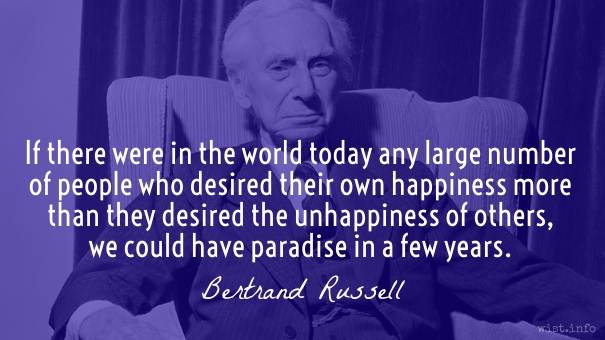For when the faculty of intellect
is joined with brute force and with evil will,
no man can win against such an alliance.[Ché dove l’argomento de la mente
s’aggiugne al mal volere e a la possa,
nessun riparo vi può far la gente.]Dante Alighieri (1265-1321) Italian poet
The Divine Comedy [Divina Commedia], Book 1 “Inferno,” Canto 31, l. 55ff (31.55) (1309) [tr. Musa (1971)]
(Source)
Why Nature no longer allows human-like giants, while still producing whales and elephants.
(Source (Italian)). Alternate translations:
For where the mind to bad Intention's join'd,
And with a Pow'r what's ill design'd to act,
None can himself from such a force defend.
[tr. Rogers (1782), l. 49ff]
But not the forest tribes, nor finny race,
With equal rage their native walks deface,
As he whose deadly arm by Reason's light
Directed falls, and mocks the warding hand;
Conspiring realms in vain his pow'r withstand,
In vain embattled hosts defend their right.
[tr. Boyd (1802), st. 9]
For when brute force
And evil will are back’d with subtlety,
Resistance none avails.
[tr. Cary (1814)]
For discourse of mind,
Wedded with power and inbred lust of wrong,
Had left nor help nor rescue for mankind.
[tr. Dayman (1843)]
For where [the instrument] of [the] mind is joined to evil will and potency, men can make no defence against it.
[tr. Carlyle (1849)]
For when a reasoning and a subtle mind
Is joined, besides, to evil will and power,
Who can resist? -- for all defence must cower.
[tr. Bannerman (1850)]
For when the reasoning faculty combines
With evil will and with destructive pow'r,
Then there remains no more defence for man.
[tr. Johnston (1867)]
For where the argument of intellect
Is added unto evil will and power,
No rampart can the people make against it.
[tr. Longfellow (1867)]
For where the equipment of the mind is joined to illwill and to power, folk can make no rampart against it.
[tr. Butler (1885)]
For where the assistance of the intellect
Is added unto evil will and power,
'Gainst it no refuge could mankind erect.
[tr. Minchin (1885)]
For where the faculty of the mind is added to evil will and to power, the human race can make no defense against it.
[tr. Norton (1892)]
For where the force of intellect is joined to evil will, and power to do such will, mankind is helpless to find resource against it.
[tr. Sullivan (1893)]
For, where the equipment and the use of reason
Are joined to ill intent and power of action,
No sort of refuge can folk make against it.
[tr. Griffith (1908)]
For where the equipment of the mind is joined to evil will and to power men can make no defence against it.
[tr. Sinclair (1939)]
For if with the mind's instrument unite
Power and an evil purpose both at once,
Men have no means against such force to fight.
[tr. Binyon (1943)]
For where the instrument of thinking mind
Is joined to strength and malice, man’s defence
Cannot avail to meet those powers combined.
[tr. Sayers (1949)]
For where the instrument of intelligence
is added to brute power and evil will,
mankind is powerless in its own defense.
[tr. Ciardi (1954)]
For where the instrument of the mind is added to an evil will and to great power, men can make no defense against it.
[tr. Singleton (1970)]
For where the mind’s acutest reasoning
is joined to evil will and evil power,
there human beings can’t defend themselves.
[tr. Mandelbaum (1980)]
For, where the argument of reason is
Joined with an evil will and potency,
There is no possible defence for man.
[tr. Sisson (1981)]
The power of the mind, along with that
Of immense strength, upon an evil will
Then people will have no defense from it.
[tr. Pinsky (1994), l. 52ff]
For where sharpness of mind is joined to evil will and power, there is no defence people can make against them.
[tr. Durling (1996)]
Where the instrument of mind is joined to ill will and power, men have no defence against it.
[tr. Kline (2002)]
For when the powers of working intellect
are wed to strength and absolute illwill,
then humans cannot find a place to hide.
[tr. Kirkpatrick (2006)]
For when the power of thought
is coupled with ill will and naked force
there is no refuge from it for mankind.
[tr. Hollander/Hollander (2007)]
For when the thinking powers of human brains
Are tools of malicious will and enormous strength,
Smaller creatures like men have no defense.
[tr. Raffel (2010)]
For only when ill will and massive strength
Are joined with mental power does it arise
That the invincible is born.
[tr. James (2013), l. 58ff]
Quotations about:
malice
Note not all quotations have been tagged, so Search may find additional quotes on this topic.
Of all malice that makes of Heaven a foe
The end is injury, and all such end won
By force or fraud worketh another’s woe.
But since fraud is a vice of man’s alone,
It more offends God: so are lowest set
The fraudulent, and the heavier is their groan.[D’ogne malizia, ch’odio in cielo acquista,
ingiuria è ‘l fine, ed ogne fin cotale
o con forza o con frode altrui contrista.
Ma perché frode è de l’uom proprio male,
più spiace a Dio; e però stan di sotto
li frodolenti, e più dolor li assale.]Dante Alighieri (1265-1321) Italian poet
The Divine Comedy [Divina Commedia], Book 1 “Inferno,” Canto 11, l. 22ff (11.22-27) [Virgil] (1309) [tr. Binyon (1943)]
(Source)
(Source (Italian)). Alternate translations:
Of ev'ry Vice which odious is in Heav'n
To injure is the purport, and the end;
Either by Force, or Fraud. But as to Man
Fraud is peculiar, it more God offends:
Therefore the fraudulent are lower plac'd,
And greater punishment and pains endure.
[tr. Rogers (1782), l. 21ff]
Above the Sons of Violence reside,
The bands of Fraud below together hide;
(Vile Fraud! The heav'n-born soul's peculiar blot!)
For this, in fiercer pains, the traitors keep
Their horrid vigils far in yonder deep;
Hated of Heav'n, and fill the lowest lot.
[tr. Boyd (1802), st. 5]
Of all malicious act abhorr’d in heaven,
The end is injury; and all such end
Either by force or fraud works other’s woe
But fraud, because of man peculiar evil,
To God is more displeasing; and beneath
The fraudulent are therefore doom’d to’ endure
Severer pang.
[tr. Cary (1814)]
Of each malicious act, abhorred on high.
Injustice is the end: for others' woe
Must all such ends or force or fraud apply.
But fraud in man his proper vice doth show,
To God more odious; wherefore deeper here
The fraudful sink, and mourn a sharper throe.
[tr. Dayman (1843)]
Of all malice, which gains hatred in Heaven, the end is injury; and every such end, either by force or by fraud, aggrieveth others.
But because fraud is a vice peculiar to man, it more displeases God; and therefore the fraudulent are placed beneath, and more pain assails them.
[tr. Carlyle (1849)]
Of evil deed, that's stamped with hate in heaven,
Is injury the end. Each end's attained
With force or fraud, by which another's pained.
Since fraud is then the native ill of man,
It more displeases God; beneath the vault,
The fraudulent the deeper pains assault.
[tr. Bannerman (1850)]
Of ev'ry malice which just heav'n abhors,
To injure is the end; and each such end,
Either by force or fraud, makes others grieve.
But since of man fraud is the proper sin,
More it displeases God; and so beneath
Are plac'd the fraudulent with heavier pains.
[tr. Johnston (1867)]
Of every malice that wins hate in Heaven,
Injury is the end; and all such end
Either by force or fraud afflicteth others.
But because fraud is man's peculiar vice,
More it displeases God; and so stand lowest
The fraudulent, and greater dole assails them.
[tr. Longfellow (1867)]
Of every badness which earns hatred in heaven, injury is the end; and every such end either by force or by fraud causes grief to another.
But because fraud is an ill peculiar to man, it more displeases God; and for this cause the fraudulent have their station below, and woe assails them more.
[tr. Butler (1885)]
Of every malice that in Heaven wins hate
The end is injury, and each such plan
By force or fraud on some wreaks woeful fate.
Since fraud is ill peculiar unto man
God it displeases more, and hence more low
The fraudulent are doomed to greater pain.
[tr. Minchin (1885)]
Of every malice that wins hate in heaven injury is the end, and every such end afflicts others either by force or by fraud. But because fraud is the peculiar sin of man, it most displeaseth God; and therefore the fraudulent are the lower, and more woe assails them.
[tr. Norton (1892)]
Of every evil act that earneth hate in Heaven, the end is injury; and every such end, by either violence or fraud, heapeth sorrow upon others. But forasmuch as fraud is man's peculiar vice, it is the more displeasing unto God ; and therefore they who dealt in fraud are set beneath, and greater is the torture that doth afflict them.
[tr. Sullivan (1893)]
All wickedness that lays up hate in heaven
Injustice hath for end, and such end alway,
Either by force or fraud, afflicts another:
But, seeing that fraud is man's peculiar evil,
More it displeases God: therefore are lowest
The fraudulent, and greater woe assails them.
[tr. Griffith (1908)]
Every kind of wickedness that gains the hatred of Heaven has injustice for its end, and every such end afflicts someone either by force or fraud; but because fraud is sin peculiar to man it is more offensive to God, and for that reason the fraudulent have their place lower nad more pain assails them.
[tr. Sinclair (1939)]
Of all malicious wrong that earns Heaven's hate
The end is injury; all such ends are won
Either by force or fraud. Both perpetuate
Evil to others; but since man alone
Is capable of fraud, God hates that worst;
The fraudulent lie lowest, then and groan
Deepest.
[tr. Sayers (1949)]
Malice is the sin most hated by God
And the aim of malice is to injure others
whether by fraud or violence. But since fraud
is the vice fo which man alone is capable,
God loathes it most. Therefore, the fraudulent
are place below, and their torment is more painful.
[tr. Ciardi (1954)]
Of every malice that gains hatred in Heaven the end is injustice; and every such end, either by force or by fraud, afflicts another. But because fraud is an evil peculiar to man, it more displeases God, and therefore the fraudulent are the lower, and more pain assails them.
[tr. Singleton (1970)]
All malice has injustice as its end,
an end achieved by violence or by fraud;
while both are sins that earn the hate of Heaven,
since fraud belongs exclusively to man,
God hates it more and, therefore, far below,
the fraudulent are placed and suffer most.
[tr. Musa (1971)]
Of every malice that earns hate in Heaven,
injustice is the end; and each such end
by force or fraud brings harm to other men.
However, fraud is man's peculiar vice;
God finds it more displeasing -- and therefore,
the fraudulent are lower, suffering more.
[tr. Mandelbaum (1980)]
The object of all malice, which earns heaven's hatred,
Is injury; every object of that kind
Causes distress to others by force or fraud.
And because fraud is an evil peculiar to men,
It displeases God the more; and therefore the fraudulent
are placed beneath and greater pain assail them.
[tr. Sisson (1981)]
The end of every wickedness that feels
Heaven's s hatred is injustice -- and each end
Of this kind, whether by force or fraud, afflicts
Some other person. But since fraud is found
In humankind as its peculiar vice,
It angers God more: so the fraudulent
Are lower, and suffer more unhappiness.
[tr. Pinsky (1994), l. 21ff]
Of every malice gaining the hatred of Heaven, injustice is the goal, and efvery such goal injures someone either with force or with fraud.
But because fraud is an evil proper to man, it is more displeasing to God; and therefore the fraudulent have a lower place and greater pain assails them.
[tr. Durling (1996)]
The outcome of all maliciousness, that Heaven hates, is harm: and every such outcome, hurts others, either by force or deceit. But because deceit is a vice peculiar to human beings, it displeases God more, and therefore the fraudulent are placed below, and more pain grieves them.
[tr. Kline (2002)]
Malice is aimed in all its forms -- and thus
incurs the hatred of Heaven -- at gross injustice,
and, aiming so, harms others, by deceit or force.
Deceit, though, is specifically a human wrong,
and hence displeases God the more. Liars
are therefore deeper down, and tortured worse.
[tr. Kirkpatrick (2006)]
Every evil deed despised in Heaven
has as its end injustice. Each such end
harms someone else through either force or fraud.
But since the vice of fraud is man's alone,
it more displeases God, and thus the fraudulent
are lower down, assailed by greater pain.
[tr. Hollander/Hollander (2007)]
Hated by Heaven, every conscious
sin will end in injustice, and each new sin,
By force or fraud, creates the same result.
But since such fraud is a sin unique to men,
God hates it more. So sinners guilty of fraud
Go farther down, and deeper pain attacks them.
[tr. Raffel (2010)]
Crimes Heaven hates have for their end
Injustice, and that end afflicts someone
Either by force or fraud, and must offend
The Lord, for fraud is human, and ills done
By humans please Him least, and therefore they,
The tricksters, lie down and suffer more.
[tr. James (2013)]
A certain combination of incompetence and indifference can cause almost as much suffering as the most acute malevolence.
Bruce Catton (1899-1978) American historian and journalist
A Stillness at Appomattox (1953)
(Source)
Regarding prison camps during the US Civil War.
There is no rampart that will hold out against malice.
[Contre la médisance il n’est point de rempart.]
Molière (1622-1673) French playwright, actor [stage name for Jean-Baptiste Poquelin]
Tartuffe, Act 1, sc. 1, l. 99 (1664)
(Source)
Alt. trans.: "Against backbiting there is no bulwark."
There is no possibility of being witty without a little ill-nature; the malice in a good thing is the barb that makes it stick.
Richard Brinsley Sheridan (1751-1816) Irish dramatist, satirist, politician
The School for Scandal, Act 1 (1777)
(Source)
Malice is of a low Stature, but it hath very long Arms.
George Savile, Marquis of Halifax (1633-1695) English politician and essayist
“Of Malice and Envy,” Political, Moral, and Miscellaneous Thoughts and Reflections (1750)
(Source)
I ask you not to hate people who treat you badly. … This is easier to write than it is to live but there are ignorant people. Only a few are truly malicious. Hate is a poison. It can spread through your system. Forgive them if you can. Forget them if you must.
Rita Mae Brown (b. 1944) American author, playwright
Interview in OutSmart magazine (Jan 1998)
(Source)
The ratio of damn fools to villains is high.
If there were in the world today any large number of people who desired their own happiness more than they desired the unhappiness of others, we could have paradise in a few years.
Bertrand Russell (1872-1970) English mathematician and philosopher
Interview by Seth King, New York Times (1961-05-18)
Interview on his 89th Birthday. The article does not presently show up in the NYT archives, but the quotation is mentioned in Newsweek, "Newsmakers" (1961-05-29), and in Think Magazine, "Thoughts" (1961-12).
For at least two thirds of our miseries spring from human stupidity, human malice, and those great motivators and justifiers of malice and stupidity, idealism, dogmatism, and proselytizing zeal on behalf of religious or political idols.
Aldous Huxley (1894-1963) English novelist, essayist and critic
“Knowledge and Understanding,” Vedanta and the West (May-Jun 1956)
(Source)
Revision of a 1955 lecture given at the Vedanta Society of Southern California; this phrase, however, does not occur in it (the surrounding text is found around the 10:00 mark). Reprinted in Adonis and the Alphabet, and Other Essays (in the US Tomorrow and Tomorrow and Tomorrow, and Other Essays) (1956).
And I have again observed, my dear friend, in this trifling affair, that misunderstandings and neglect occasion more mischief in the world than even malice and wickedness. At all events, the two latter are of less frequent occurrence.
[Und ich habe, mein Lieber, wieder bei diesem kleinen Geschäft gefunden, dass Missverständnisse und Trägheit vielleicht mehr Irrungen in der Welt machen als List und Bosheit. Wenigstens sind die beiden letzteren gewiss seltener.]
Johann Wolfgang von Goethe (1749-1832) German poet, statesman, scientist
Die Leiden des jungen Werthers [The Sorrows of Young Werther], “Letter from May 4th” (1774)
Alt. trans.: "Misunderstandings and neglect create more confusion in this world than trickery and malice. At any rate, the last two are certainly much less frequent."
Everybody knows that the first law of history is not daring to say anything false; that the second is daring to say everything that is true; that there should be no suggestion of partiality, none of animosity when you write.
[Nam quis nescit primam esse historiae legem, ne quid falsi dicere audeat? Deinde ne quid veri non audeat? Ne quae suspicio gratiae sit in scribendo? Ne quae simultatis?]
Marcus Tullius Cicero (106-43 BC) Roman orator, statesman, philosopher
De Oratore [On the Orator, On Oratory], Book 2, ch. 15 (2.15) / sec. 62 (55 BC) [tr. May/Wisse (2001)]
(Source)
(Source (Latin)). Alternate translations:
For, is there a Man ignorant, that the first Rule of History is, that an Historian shall not dare to advance a Falsity; the next, that there is no Truth but what he shall dare to tell? That in Writing, he shall be free of all Prepossession; of all Pique?
[tr. Guthrie (1755)]
For, is there a man ignorant that the first rule of history is that an historian shall not dare to advance a falsehood; the next, that there no truth but what he shall dare to tell? That the writer should be actuated neither by favour, or by prejudice?
[Source (1808)]
For who is ignorant that it is the first law in writing history, that the historian must not dare to tell any falsehood, and the next, that he must be bold enough to tell the whole truth? Also, that there must be no suspicion of partiality in his writings, or of personal animosity?
[tr. Watson (1860)]
Who need be informed that the first law of history is, to have the honesty to state no falsehood, the next, the courage to suppress no truth, and to avoid all suspicion of undue bias or personal animosity?
[tr. Calvert (1870)]
Who does not recognise that the first law of history is that we shall never dare to say what is false; the second that we shall never fear to say what is true; that everything we write shall be free from any suspicion of favoritism or flattery?
[ed. Harbottle (1906)]
For who does not know history's first law to be that an author must not dare to tell anything but the truth ? And its second that he must make bold to tell the whole truth? That there must be no suggestion of partiality anywhere in his writings? Nor of malice?
[tr. Sutton/Rackham (1940)]
The first law for the historian is that he shall never dare utter an untruth. The second is that he shall suppress nothing that is true. Moreover, there shall be no suspicion of partiality in his writing, or of malice.
[Bartlett's]
The widespread interest in gossip is inspired, not by a love of knowledge, but by malice: no one gossips about other people’s secret virtues, but only about their secret vices. Accordingly most gossip is untrue, but care is taken not to verify it. Our neighbour’s sins, like the consolations of religion, are so agreeable that we do not stop to scrutinize the evidence closely.
Bertrand Russell (1872-1970) English mathematician and philosopher
“The Aims of Education” (1929)
(Source)
Usually shortened to "No one gossips about other people's secret virtues."
Never attribute to malice that which is adequately explained by stupidity.
(Other Authors and Sources)
Robert J. Hanlon, “Hanlon’s Razor,” Murphy’s Law, Book Two (ed. A. Bloch) (1980)
















